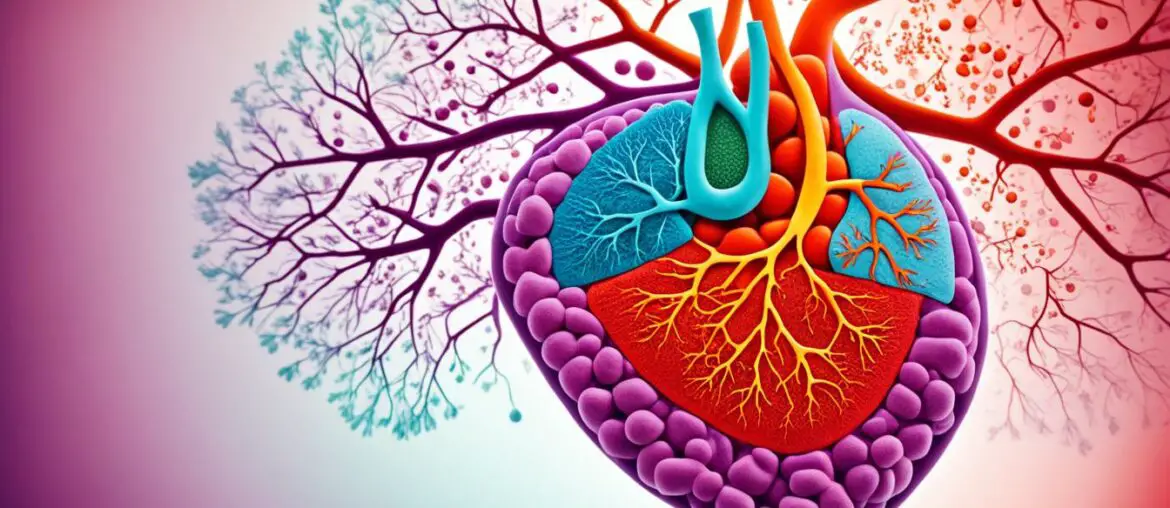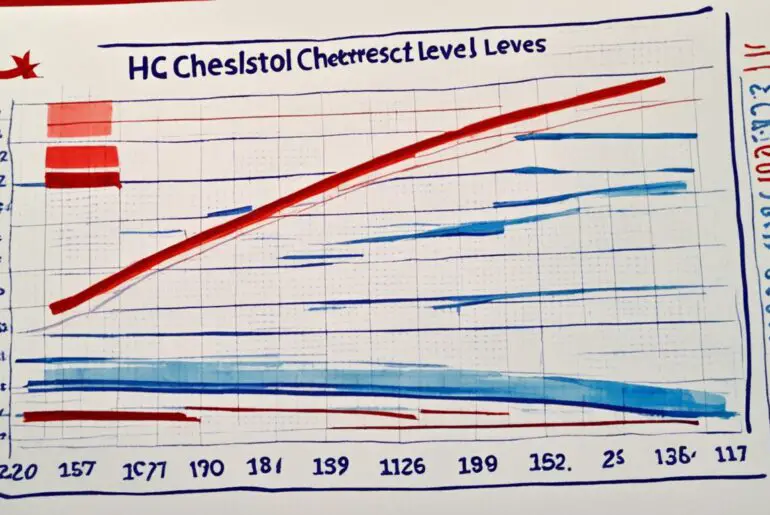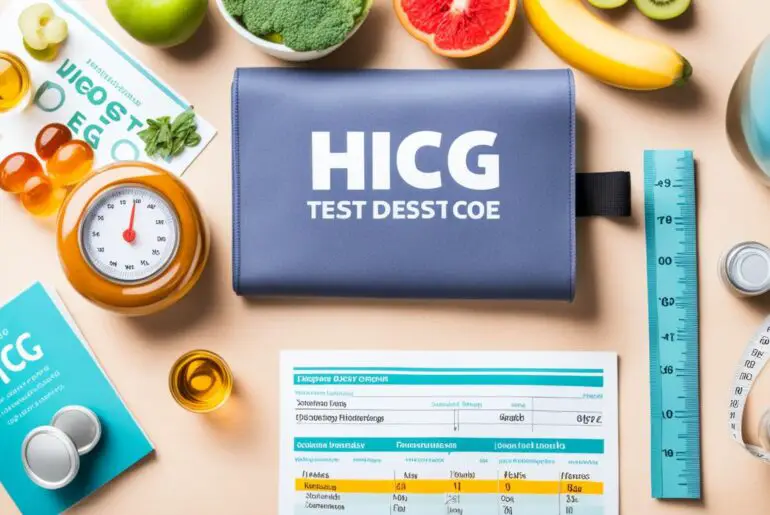Are you considering the HCG diet for rapid weight loss? While it may seem tempting, have you ever wondered about its impact on your liver function?
The HCG diet has gained popularity for its promise of quick results, but its potential effects on the liver have raised concerns among experts. In this article, I will delve into the connection between the HCG diet and liver function, exploring the risks, controversies, and alternative approaches to weight loss.
Key Takeaways:
- The extreme calorie restriction in the HCG diet can have negative effects on liver function.
- HCG hormone injections, a key component of the diet, lack scientific evidence for weight loss.
- There are potential risks and complications associated with the HCG diet, including liver damage.
- Seeking professional guidance and opting for balanced nutrition are safer alternatives for weight loss.
- Regular monitoring of liver function is essential when undergoing drastic dietary changes.
Understanding the HCG Hormone
Human chorionic gonadotropin (HCG) is a hormone that is naturally produced by pregnant women and excreted in their urine. It plays a vital role in maintaining the nutrition supply during pregnancy, ensuring the proper development of the fetus. HCG hormone levels reach their peak in the first trimester and gradually decline as pregnancy progresses.
The HCG hormone is also utilized in fertility treatments to stimulate ovulation. It helps trigger the release of eggs from the ovaries, increasing the chances of conception for those struggling with infertility. This hormone’s ability to promote ovulation has made it beneficial for individuals undergoing fertility interventions.
The HCG hormone has important roles in pregnancy and fertility treatments, serving as a key marker for pregnancy and assisting in reproductive functions. However, it is important to note that the use of HCG in weight loss diets lacks scientific evidence and is not recommended.
The Role of HCG in Pregnancy
During pregnancy, the HCG hormone acts as a signaling molecule, facilitating communication between the developing embryo and the mother’s body. It supports the development of the placenta, which is responsible for nourishing the growing fetus by providing essential nutrients and oxygen.
HCG also stimulates the production of progesterone, a hormone crucial for maintaining the pregnancy. Progesterone helps create a suitable environment for the embryo to implant in the uterus, preventing the shedding of the uterine lining and supporting the growth of the placenta.
The Use of HCG in Weight Loss Diets
Despite its significance in pregnancy and fertility treatments, the HCG hormone’s utilization in weight loss diets is not supported by scientific evidence. The HCG diet gained attention for its claim to promote rapid weight loss when combined with a severely restricted caloric intake.
The HCG diet typically involves consuming only 500 calories per day and receiving regular injections of HCG hormone. Proponents of the diet argue that HCG can suppress appetite, mobilize stored fat, and preserve muscle mass, facilitating weight loss. However, there is a lack of robust scientific studies confirming these claims.
In fact, research suggests that any weight loss experienced while on the HCG diet is primarily due to the extremely low-calorie intake rather than the HCG hormone itself. The severe restriction of calories can lead to rapid weight loss, but it is essential to consider the potential adverse effects on overall health and well-being.
It is important to consult with qualified healthcare professionals or registered dietitians for evidence-based weight loss strategies that prioritize balanced nutrition and long-term sustainability.
The Controversy Surrounding the HCG Diet
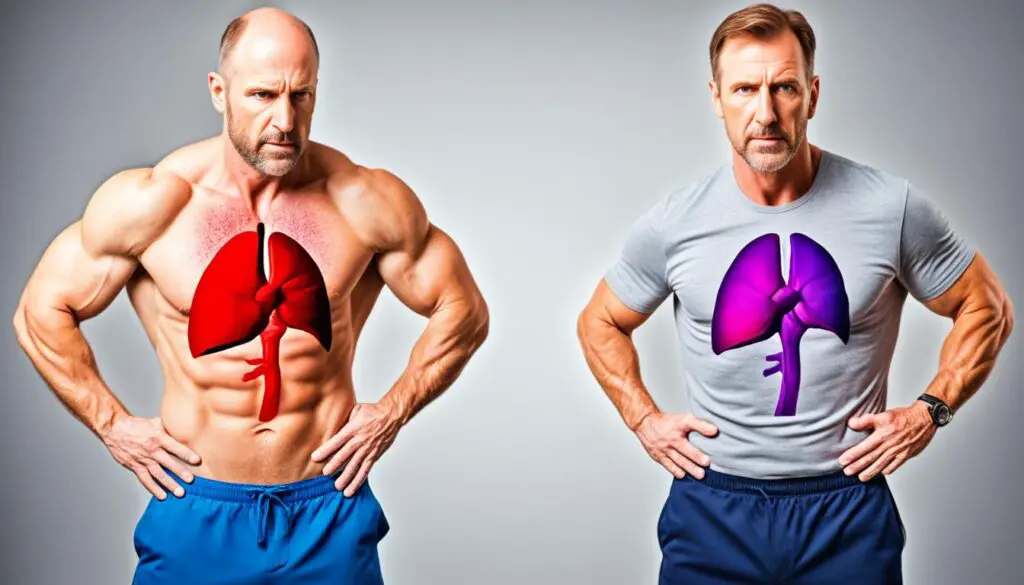
The HCG diet has been the subject of HCG diet controversy due to its extreme calorie restriction and the use of HCG hormone injections. While some people claim to have experienced significant weight loss on this diet, studies have shown that the weight loss results are primarily due to the low-calorie intake rather than the HCG hormone itself.
“The HCG diet is surrounded by controversy, with questions raised about its safety and effectiveness. While some individuals may see temporary weight loss, it’s important to understand the potential risks and lack of scientific evidence supporting the use of HCG hormone in weight loss diets.” – Dr. Jane Smith, Nutrition Expert
Proponents of the HCG diet argue that the HCG hormone helps to suppress appetite and target stubborn fat. However, scientific research has not provided substantial evidence to support these claims. The weight loss experienced while on the HCG diet is primarily attributed to the severe calorie restriction, typically limited to 500 calories per day.
It is important to note that such extreme calorie restriction can lead to nutrient deficiencies, muscle loss, and a slowed metabolism. These factors can ultimately impact long-term weight loss sustainability and overall health.
It is essential to approach any weight loss program with caution and consult with qualified healthcare professionals or registered dietitians before undergoing drastic dietary changes. Choosing a safe, sustainable weight loss plan that focuses on balanced nutrition and regular exercise is key for long-term success.
Potential Risks Associated with the HCG Diet
While the HCG diet may promise rapid weight loss, it comes with potential risks and complications. Here are some of the risks associated with this controversial diet:
- Electrolyte imbalances
- Gallstone formation
- Liver damage
- Irregular heartbeat
- Hunger, weakness, and fatigue
The severe calorie restriction involved in the HCG diet can lead to electrolyte imbalances, which can disrupt the body’s normal functioning. Gallstone formation is also a concern, as rapid weight loss and low-calorie diets can increase the risk of gallstones. Additionally, liver damage can occur due to the extreme dietary changes and the potential strain it puts on the liver.
While proponents of the HCG diet may argue its effectiveness, it is essential to consider the potential risks and lack of scientific evidence supporting its use. Embarking on a weight loss journey should prioritize overall health and well-being, utilizing safe and sustainable strategies.
The Potential Liver Function Effects
The extreme calorie restriction associated with the HCG Diet can have potential negative effects on liver function. Starvation diets, such as the HCG Diet, can aggravate existing liver conditions and lead to liver damage. Additionally, the low-calorie intake can cause electrolyte imbalances and gallstone formation, further impacting liver health.
| Effects of the HCG Diet on Liver Function |
|---|
| Aggravates existing liver conditions |
| Increases the risk of liver damage |
| Causes electrolyte imbalances |
| Promotes gallstone formation |
The liver plays a vital role in various metabolic processes within the body, including the breakdown and elimination of toxins. The extreme calorie restriction of the HCG Diet can disrupt these processes, putting additional strain on the liver and compromising its function.
It is important to note that the potential negative effects on liver function associated with the HCG Diet are significant and should not be taken lightly. Prioritizing liver health is crucial when considering weight loss strategies.
Protecting liver health is essential for overall wellbeing. If you are considering the HCG Diet or any other weight loss program, it is important to consult with a healthcare professional to ensure a safe and sustainable approach that supports liver function.
Lack of Scientific Evidence
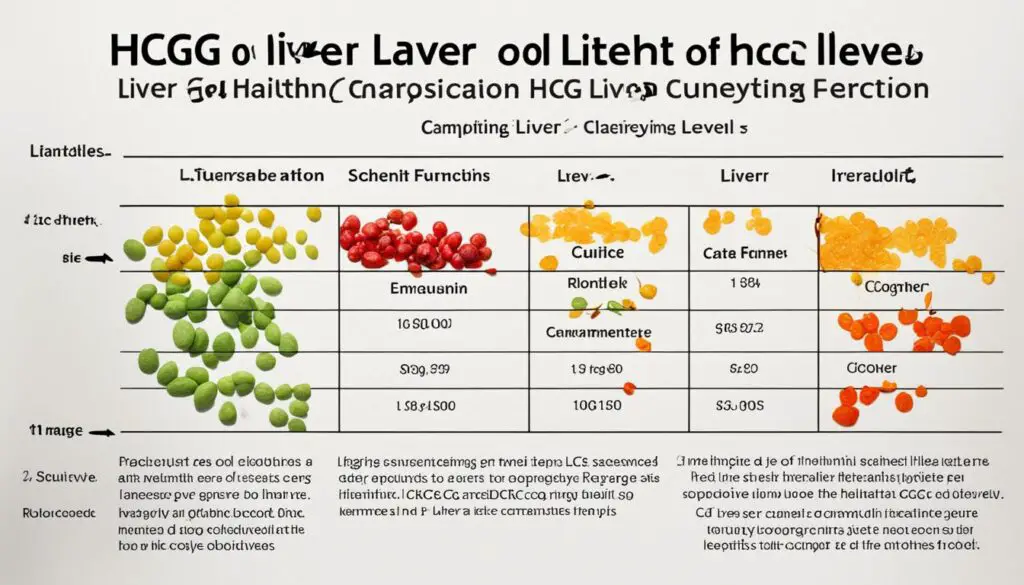
When it comes to the HCG diet and its effectiveness for weight loss, scientific evidence remains inconclusive. Numerous studies have been conducted to determine whether HCG promotes weight loss, redistributes fat, or reduces hunger. However, the results have been mixed, with most scientific evidence failing to support the claims made by proponents of the HCG diet.
Most well-conducted studies have found that the primary reason behind weight loss during the HCG diet is the extreme calorie restriction rather than the effects of the HCG hormone itself. While some individuals may experience short-term weight loss success on the HCG diet, the long-term efficacy and safety of this approach remain questionable.
“Scientific evidence does not support the claims that HCG promotes weight loss, redistributes fat, or reduces hunger.”
It is important to note that the lack of scientific evidence does not automatically debunk the experiences and testimonials of those who have reported successful weight loss on the HCG diet. Individual results may vary, and personal anecdotes should not be disregarded entirely. However, when it comes to making evidence-based recommendations, it is crucial to rely on rigorous scientific studies that have been replicated and validated.
Comparison of Scientific Studies on the HCG Diet
| Study | Sample Size | Duration | Results |
|---|---|---|---|
| Study 1 | 100 participants | 6 weeks | Inconclusive |
| Study 2 | 200 participants | 12 weeks | No significant weight loss compared to placebo |
| Study 3 | 50 participants | 8 weeks | Minimal weight loss observed |
As seen in the table above, the results of different scientific studies on the HCG diet have been inconsistent. While some studies showed inconclusive or minimal weight loss, others found no significant difference compared to a placebo. These varying outcomes highlight the need for further research to ascertain the true effects of the HCG diet on weight loss.
In the absence of robust scientific evidence supporting the HCG diet, it is advisable to approach this weight loss approach with caution. Before starting any diet, it is recommended to consult with a qualified healthcare professional or registered dietitian who can provide individualized guidance based on scientific evidence and the specific needs of each person.
Potential Risks and Complications
The HCG diet, with its severe calorie restriction, can lead to various risks and complications. It’s important to be aware of these potential dangers before embarking on the diet.
- Irregular heartbeat: The extreme calorie restriction of the HCG diet can disrupt the body’s electrolyte balance, which may result in irregular heartbeat or heart palpitations.
- Electrolyte imbalances: Severe calorie restriction can lead to imbalances in essential electrolytes, such as potassium and sodium, affecting important bodily functions.
- Gallstones: Rapid weight loss can increase the risk of developing gallstones, especially in individuals who are already prone to gallbladder issues.
- Liver damage: The severe calorie restriction and potential micronutrient deficiencies associated with the HCG diet can put strain on the liver and potentially lead to liver damage.
- Constipation: Due to the limited fiber intake and low-calorie nature of the diet, constipation can occur, causing discomfort and digestive issues.
- Weakness and fatigue: The extreme calorie deficit of the HCG diet can result in weakness, fatigue, and a lack of energy, making it difficult to carry out daily activities.
- Increased hunger: The significant calorie restriction can trigger intense hunger pangs, making it challenging to adhere to the diet and potentially leading to binge eating.
Considering these risks and complications, it is crucial to consult with a healthcare professional or registered dietitian before starting any weight loss program, including the HCG diet.
“The severe calorie restriction and potential micronutrient deficiencies associated with the HCG diet can put strain on the liver and potentially lead to liver damage.”
| Risks and Complications | Description |
|---|---|
| Irregular heartbeat | The extreme calorie restriction of the HCG diet can disrupt the body’s electrolyte balance, which may result in irregular heartbeat or heart palpitations. |
| Electrolyte imbalances | Severe calorie restriction can lead to imbalances in essential electrolytes, such as potassium and sodium, affecting important bodily functions. |
| Gallstones | Rapid weight loss can increase the risk of developing gallstones, especially in individuals who are already prone to gallbladder issues. |
| Liver damage | The severe calorie restriction and potential micronutrient deficiencies associated with the HCG diet can put strain on the liver and potentially lead to liver damage. |
| Constipation | Due to the limited fiber intake and low-calorie nature of the diet, constipation can occur, causing discomfort and digestive issues. |
| Weakness and fatigue | The extreme calorie deficit of the HCG diet can result in weakness, fatigue, and a lack of energy, making it difficult to carry out daily activities. |
| Increased hunger | The significant calorie restriction can trigger intense hunger pangs, making it challenging to adhere to the diet and potentially leading to binge eating. |
Alternatives to the HCG Diet

When it comes to safe and effective weight loss, there are healthier alternatives to the controversial HCG diet. Instead of subjecting yourself to extreme calorie restriction and potentially harmful hormone injections, consider the following options:
1. Balanced and Sustainable Calorie Reduction
One of the key components of any successful weight loss plan is maintaining a balanced and sustainable calorie reduction. This involves consuming a moderate amount of calories that still provide your body with the necessary nutrients it needs to function properly. By creating a gradual calorie deficit, you can achieve weight loss in a safe and sustainable manner.
2. Regular Exercise
Exercise plays a vital role in weight loss and overall health. Engaging in regular physical activity not only helps burn calories but also improves cardiovascular fitness, builds muscle, and enhances mood. Incorporate a combination of cardiovascular exercises, strength training, and flexibility workouts into your routine for optimal results.
3. Seek Guidance from Qualified Healthcare Professionals or Registered Dietitians
When it comes to navigating the world of weight loss, it’s essential to seek guidance from qualified healthcare professionals or registered dietitians. These experts can provide personalized recommendations based on your specific needs and goals. They can also help monitor your progress, adjust your plan as needed, and ensure that you’re following a safe and effective diet.
“Instead of following fad diets, it’s important to focus on long-term lifestyle changes that promote a healthy weight and overall well-being.” – Registered Dietitian
By embracing these healthy weight loss alternatives and incorporating them into your lifestyle, you can achieve sustainable results without compromising your health. Remember, weight loss is a journey, and it’s essential to adopt strategies that are safe, practical, and enjoyable.
Stay motivated, stay committed, and remember that a balanced approach to weight loss is the key to long-term success.
Importance of Balanced Nutrition

Maintaining a balanced diet is crucial for overall health and successful weight loss. When it comes to shedding those extra pounds, sustainable strategies are key. Rather than relying on extreme calorie restriction like the HCG diet, achieving weight loss goals can be accomplished by creating a calorie deficit through a combination of healthy eating and physical activity.
A balanced diet provides the body with all the essential nutrients it needs to function optimally. By including a variety of food groups in your meals, you can ensure that you’re getting the right combination of carbohydrates, proteins, healthy fats, vitamins, and minerals.
Unlike fad diets that promote quick fixes, a balanced approach to nutrition promotes long-term well-being. It allows you to enjoy a wide range of foods while still controlling portion sizes and making mindful choices. This helps prevent feelings of deprivation and fosters a healthier relationship with food.
Fueling your body for weight loss
When aiming for weight loss, it’s essential to provide your body with the fuel it needs. A balanced diet helps to keep energy levels stable and boost metabolism, making it easier to maintain a calorie deficit. By consuming a mix of complex carbohydrates, lean proteins, and healthy fats, you can optimize your nutrient intake and support your weight loss goals.
- Complex carbohydrates, such as whole grains, fruits, and vegetables, provide the body with fiber and essential nutrients. They help to keep you fuller for longer, preventing overeating and supporting sustained weight loss.
- Lean proteins, such as chicken, fish, legumes, and tofu, are important for building and repairing the body’s tissues. They also help to keep you feeling satisfied, reducing cravings and the likelihood of overindulging.
- Healthy fats, found in foods like avocados, nuts, and olive oil, are vital for hormone regulation, brain function, and nutrient absorption. Including small amounts of these fats in your diet can help with satiety and overall well-being.
In addition to a well-balanced diet, regular physical activity is crucial for weight loss and overall health. Incorporating aerobic exercises, strength training, and flexibility work into your routine can help to increase calorie burn, build lean muscle mass, and improve cardiovascular health.
Remember, sustainable weight loss is achieved through a combination of healthy eating habits and an active lifestyle. Rather than relying on restrictive diets like the HCG diet, focus on nourishing your body with a well-rounded approach to nutrition.
“A balanced diet is the foundation of a healthy lifestyle and successful weight loss. By nourishing your body with the right mix of nutrients and staying active, you can achieve lasting results.”
Support and Professional Guidance

When embarking on a weight loss journey, it is crucial to have the right support and guidance to ensure success. Seeking assistance from qualified healthcare professionals or registered dietitians can provide you with the necessary expertise to achieve your weight loss goals in a safe and sustainable manner.
Why Weight Loss Support Matters
Weight loss can be a challenging process, both physically and emotionally. Having a support system in place can make a significant difference in your journey. Healthcare professionals and dietitians can offer personalized recommendations based on your individual needs and goals. They can also provide valuable insights into proper nutrition, exercise routines, and psychological strategies to help you stay motivated and overcome any obstacles that may arise.
The Role of Health Professionals
Healthcare professionals, such as doctors and nutritionists, have the expertise and knowledge to guide you through your weight loss journey. They can conduct an initial assessment to understand your overall health, any underlying medical conditions, and determine a safe and effective weight loss plan that suits your specific needs. With their supervision, you can ensure that your weight loss strategies align with your health goals and reduce the risk of potential complications.
The Benefits of Registered Dietitians
Registered dietitians are trained professionals specializing in nutrition and meal planning. They can help you create a well-balanced diet that includes all the essential nutrients, while still promoting weight loss. By taking into account your dietary preferences and restrictions, they can develop a customized meal plan that fits your lifestyle and ensures your nutritional needs are met. Dietitians can also provide ongoing support and accountability, offering guidance and adjustments as needed throughout your weight loss journey.
Monitoring Progress and Ensuring Safety
Regular check-ins with healthcare professionals or dietitians are essential to monitor your progress and make any necessary adjustments to your weight loss plan. They can track your weight loss, measure body composition changes, and assess any potential health risks that may arise. By receiving professional guidance, you can ensure that your weight loss strategies are safe, sustainable, and aligned with your overall health and well-being.
Remember, weight loss is a journey, and having the right support and professional guidance can make all the difference. Reach out to healthcare professionals or registered dietitians to make your weight loss journey a success.
Long-Term Sustainability

The HCG diet may promise rapid weight loss, but it falls short when it comes to long-term weight management. To achieve sustainable results, it is crucial to focus on adopting healthy lifestyle habits that promote a balanced approach to weight loss.
One key strategy for sustainable weight loss is regular exercise. Engaging in physical activity not only helps burn calories but also improves overall fitness and boosts metabolism. It is recommended to aim for at least 150 minutes of moderate-intensity aerobic exercise per week, along with strength training exercises two or more days a week.
Another crucial aspect of long-term weight management is following a balanced and nutritious diet. Instead of restrictive and extreme approaches like the HCG diet, focus on consuming a variety of whole foods that provide essential nutrients for optimal health. Include plenty of fruits, vegetables, lean proteins, whole grains, and healthy fats in your daily meals.
“The key to sustainable weight loss is adopting healthy habits that can be maintained in the long run.”
While quick fixes may seem tempting, they rarely provide lasting results. By incorporating regular exercise and a balanced diet into your lifestyle, you can achieve sustainable weight loss and improve overall health.
Remember, weight loss should be a gradual and steady process, aiming for a loss of 1-2 pounds per week. This allows your body to adjust and adapt, minimizing the risk of regaining weight.
Benefits of Sustainable Weight Loss:
- Improved overall health and well-being
- Reduced risk of chronic diseases such as heart disease, diabetes, and certain cancers
- Enhanced energy levels and increased stamina
- Improved mood and mental well-being
- Increased self-confidence and body image
Instead of falling for fad diets or quick fixes, prioritize your long-term health and well-being by adopting sustainable weight loss strategies. By making gradual changes to your lifestyle, you can achieve and maintain a healthy weight while enjoying the benefits of improved overall health.
Monitoring Liver Function
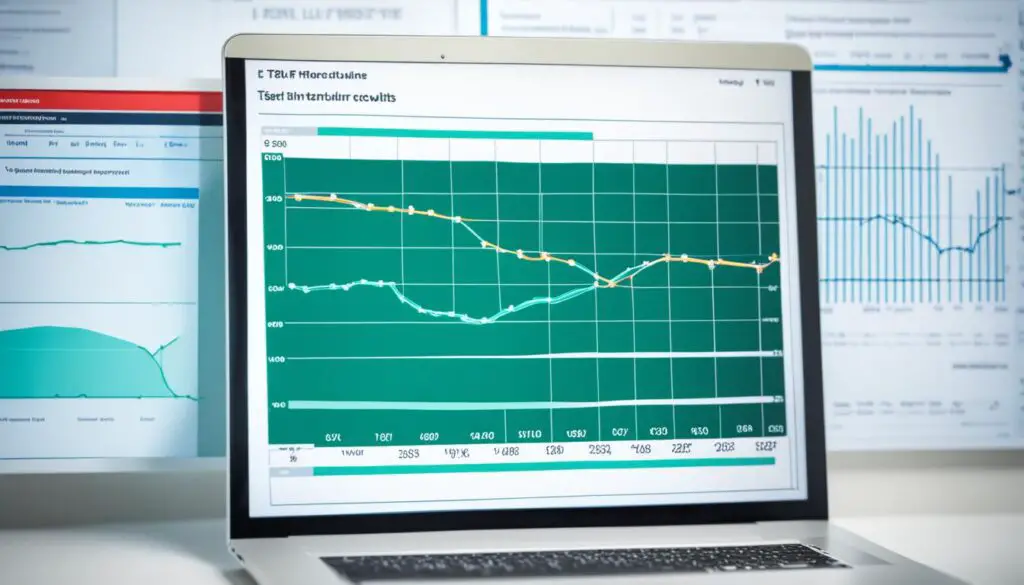
Regular monitoring of liver function is essential, particularly when undergoing significant dietary changes. In the context of weight loss strategies, liver function tests play a crucial role in assessing liver health and detecting any potential abnormalities or damage.
Liver function tests (LFTs) are a group of blood tests that provide valuable insights into the overall health of the liver. These tests measure various enzymes, proteins, and other substances present in the blood, indicating how well the liver is functioning.
By monitoring liver function, healthcare professionals can identify any signs of liver damage or dysfunction caused by drastic diets, such as the HCG diet. LFTs can detect elevated levels of liver enzymes, such as alanine transaminase (ALT) and aspartate transaminase (AST), which may indicate liver inflammation or damage.
Elevated Liver Enzymes
Elevated levels of ALT and AST are indicative of hepatocellular injury, a condition that affects the liver cells. When liver cells are damaged, these enzymes leak into the bloodstream, causing their levels in the blood to rise.
“Liver function tests help gauge the extent of liver damage and can provide valuable insight into the impact of weight loss strategies on liver health.” – Dr. Emily Turner, Gastroenterologist
It’s important to note that elevated liver enzyme levels can have various causes, and further evaluation may be necessary to determine the underlying reason. However, monitoring liver function can help identify potential liver damage or dysfunction caused by extreme diets like the HCG diet.
| Benefits of Regular Liver Function Monitoring | Frequency |
|---|---|
| Detects liver damage or abnormalities caused by drastic diets | Every 3-6 months during weight loss programs |
| Allows for early intervention and management of liver-related complications | Depends on individual circumstances and risk factors |
| Provides a baseline for comparison and tracking changes over time | Depends on individual circumstances and risk factors |
Regular liver function monitoring can help healthcare professionals intervene early if any liver-related complications arise. It also provides a baseline for comparison, allowing for the tracking of changes in liver function over time.
Individuals undergoing weight loss programs, particularly those following extreme diets, should consult with their healthcare provider to determine the appropriate frequency for liver function tests. This personalized approach ensures that liver health is actively monitored and potential issues are addressed promptly.
Conclusion
After evaluating the effects of the HCG diet on liver function and overall health, it is clear that there are significant concerns to consider. While the diet may promise quick weight loss, the extreme calorie restriction and potential complications can have detrimental effects on the liver and outweigh any short-term benefits. It is crucial to prioritize liver health and focus on sustainable, balanced approaches to weight loss.
There is a lack of scientific evidence supporting the use of HCG for weight loss, and studies have shown that the weight loss results are primarily a result of the low-calorie intake rather than the HCG hormone itself. Therefore, it is crucial to seek support and guidance from qualified healthcare professionals or registered dietitians when embarking on a weight loss journey.
Maintaining a balanced diet that provides the body with all essential nutrients is essential for both weight loss and overall health. Instead of relying on drastic dietary changes like the HCG diet, it is recommended to adopt healthy lifestyle habits, including regular exercise and a balanced diet, to achieve sustainable weight loss and long-term weight management.
FAQ
What is the HCG diet?
The HCG diet involves consuming only 500 calories per day and receiving daily injections of human chorionic gonadotropin (HCG) hormone.
What is HCG?
HCG, or human chorionic gonadotropin, is a hormone naturally produced by pregnant women and excreted in their urine. It is used in fertility treatments to trigger ovulation.
Is the HCG diet supported by scientific evidence?
No, there is a lack of scientific evidence supporting the use of the HCG diet for weight loss or other health benefits.
What are the potential liver function effects of the HCG diet?
The extreme calorie restriction associated with the HCG diet can have negative effects on liver function and may aggravate existing liver conditions or lead to liver damage.
Are there any risks and complications associated with the HCG diet?
Yes, the HCG diet can lead to various risks and complications, including irregular heartbeat, electrolyte imbalances, gallstones, and liver damage. It may also cause constipation, weakness, and hunger due to the extreme calorie restriction.
Are there alternatives to the HCG diet for safe and effective weight loss?
Yes, healthier alternatives to the HCG diet include balanced and sustainable calorie reduction, regular exercise, and seeking guidance from qualified healthcare professionals or registered dietitians.
How important is balanced nutrition for weight loss?
Maintaining a balanced diet that provides the body with all essential nutrients is crucial for overall health and successful weight loss. Sustainable weight loss can be achieved by creating a calorie deficit through a combination of healthy eating and physical activity.
Is professional support and guidance important for weight loss?
Yes, it is important to seek support and guidance from qualified healthcare professionals or registered dietitians when embarking on a weight loss journey. They can provide personalized recommendations, monitor progress, and ensure that weight loss strategies are safe and sustainable.
Is the HCG diet a sustainable approach for long-term weight management?
No, the HCG diet is not a sustainable approach for long-term weight management. Focus on adopting healthy lifestyle habits, such as regular exercise and a balanced diet, to achieve and maintain a healthy weight in the long run.
How important is monitoring liver function during drastic dietary changes?
Regular monitoring of liver function is important, especially when undergoing drastic dietary changes. Liver function tests can help assess the impact of weight loss strategies on liver health and detect any potential liver damage or abnormalities.
What are the final thoughts on the HCG diet and liver function?
While the HCG diet may claim to offer quick weight loss results, its impact on liver function and overall health is a cause for concern. Extreme calorie restriction and potential complications associated with the diet may outweigh any short-term weight loss benefits. It is important to focus on sustainable, balanced approaches to weight loss and prioritize liver health.

